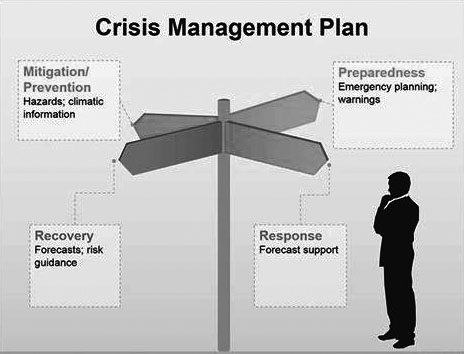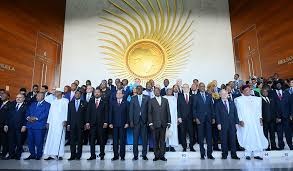
Ethiopia is apparently taking the initiative to salvage not only its economy but also those in Africa from the ravages of the ongoing coronavirus pandemic. A couple of weeks back, the Ethiopian government sent a call to rich countries or the G20 countries, to come to the rescue with a 150 billion USD aid package. This initiative has been received favorably not only by the G20 but also by the United Nations which has come with its own plan of an economic rescue package. The U.S. government has earmarked more than 2 trillion USD for the battle against the coronavirus pandemic while Africa is asking a couple of hundreds of billions of dollars for a continent with more than five times the size of the U.S. population. The asymmetry in resource allocation in the context of the pandemic is of course a matter of national wealth or power. Yet, the rich world has also the moral as well as the economic obligation to help African countries handle their problems that are also the problems of the entire world. That is why experts are increasingly calling on the world to stand together as one not only in the fight against the pandemic but also in the fight for economic survival. The other Ethiopian initiative is a call issued to the intergovernmental body known as IGAD by its acronym, to serve as a forum for coordinating economic resources and efforts in the context of the pandemic that is inevitably damaging the economies of the Horn countries. The regional body is the best forum for coordinating economic efforts in the context of the pandemic as well as in fighting it more effectively as these countries share long borders, diverse communities and share the refugee problems among themselves. The corona pandemic is unavoidably impacting regional economies that are barely struggling to survive the health crisis as well as the structural crises within their countries and in their relations with the rest of the world. It goes without saying that each horn country is unable to address these issues single handedly and any attempt to do so is bound to fail miserably because the problems are so colossal that they are going to nip any isolated effort in the bud. Horn countries rise or fall together now more than any time before not only because their destinies are intertwined but also because the challenges are so formidable that they have no choice other than coming together and fight in unison. The pressures of the pandemic as well as that of the regional economy are so urgent that any delay to address the issues is bound to fail and fail miserably. The countries of the Horn have no time to lose in lengthy conferences or in fruitless debates. The challenges are not only clear but they also present a real and immediate danger to the survival of the regional entities. The countries of the Horn are obviously poor in actual terms but they have the potentials to turn these minuses into pluses only when they decide to coordinate their actions in the two most fundamental areas, namely the fight against the pandemic and against economic crises that may follow from it. According to experts, the coronavirus pandemic has not yet reached Africa with its full force. No one knows how the continent will be faring once the virus expands its theatre of operations. The next wave of the pandemic is believed to hit Africa and many people believe that it will hit hard not only the impoverished populations but also the fragile economies across the continent. Even at this stage, the pandemic is causing serious damages to African economies. In Ethiopia, the crisis in the global aviation industry is causing massive losses not only to the industry but also to the nation’s economy as a whole. Its national carrier, the famous Ethiopian Airlines is also incurring considerable losses. South Africa is currently under a sweeping lockdown and the fallouts of this draconian measure are expected to become more evident after three weeks when the lockdown ends. Hundreds of millions of people in the informal sector are losing their incomes and this is hurting the entire economy because informal businesses form a considerable proportion of the South African economy. The private sector too is suffering from the lockdown as small and medium businesses have seen their transactions interrupted and trade activities has hit rock bottom. There are massive population displacements from big cities to the countryside as poor and unemployed workers cannot survive during the lockdown. The rural populations in the Horn of Africa are also poor, most of them displaced by conflicts and living on food donations from international agencies. The most devastating consequences of the pandemic will therefore be felt by the rural communities in African countries where food crises are the permanent fixtures of the rural economies. Unless the pandemic is controlled before it could cause the kind of economic disasters it is causing even in rich countries, famines are going to be the next waves of menace that are going to make matters even worse than what the virus might be doing. So, African countries need to fight the virus tooth and nail but also keep in mind the possibility of a rural crisis that might lead to famines unless a quick recovery would be in the offing. Their common strategy should therefore be two-pronged. They should unite and coordinate their actions both against the pandemic as well as fight against its economic fallouts. The dual strategy represents the two sides of the same coin. No doubt the pandemic and its accompanying economic downturns will cause immense suffering to the rural and urban poorest segments of the population and the national economies might go into a recession and more serious crises unless China recovers fast and comes to the rescue. As African countries cannot beat the virus single handedly, they will not emerge from the post-pandemic economic crisis only with isolated and independent efforts of their own. African countries are too poor to do things by themselves. Globalization has benefitted them to a certain extent over the last few decades but the globalization of diseases and pandemics is now threatening them to lose whatever benefits they might have gained in the past. The global debate in the context of the present pandemic is now focused on doing things together in order to beat the virus first while political and ideological differences would be postponed for tomorrow. The row between China and the U.S. over the cause of the pandemic is now pushed to the sidelines and calls for joint efforts to beat the virus are coming to the fore. Although China and the U.S. are locked in competition over economic issues and global trade in particular, the pandemic is such a colossal threat that they are forced to work together at least for now. However, African economies have no choice but to try to rescue themselves from the negative effects of the pandemic on the one hand, and urge the international community and rich Western countries in particular to make concessions to them so that they might retrieve whatever would be left of their economies once the hurricanes the present pandemic created will die down on the shores. Ethiopia’s call for a united action and a coordinated efforts in the face of these overwhelming odds need to be accepted not only with an approving nod but also with practical initiatives from members states of the IGAD and other regional organizations across Africa. These are extremely bad times of course but these are also times that require urgent actions action and solidarity without which the fate of the world is bound to worsen before it becomes better.
The Ethiopian Herald April 5/2020
BY MULUGETA GUDETA





